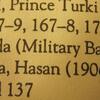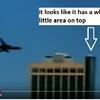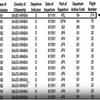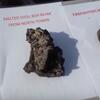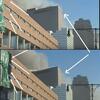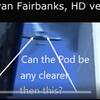 |
|
https://www.youtube.com/watch?v=pnVIGxbM4Ls |
September 11th Put Options Trading verses SEC
Sources tell 60 Minutes that the initial options were bought through at least two brokerage firms including NFS, a subsidiary of Fidelity Brokerage, and TD Waterhouse, a discount firm.
The indicator of long put volume, however, appears to be unusually high, which is consistent with informed investors having traded in the option market in advance of the attacks."
AN ASIA TIMES ONLINE EXCLUSIVE INVESTIGATION: There can be no dispute that speculative trade in put options – where a party bets that a stock will drop abruptly in value – spiked in the days around September 11, 2001 – even if the US Securities and Exchange Commission and the 9/11 Commission will not say so. More than a few people must have had advance warning of the terror attacks, and they cashed in to the tune of millions of dollars.
By Lars Schall source #1
Shill Source
volume_spikes is source 1 of 2
http://www.911myths.com/html/volume_spikes.html
American Airlines: 1535 puts
United Airlines: 2000 puts
https://web.archive.org/web/20011217014611/http://www.thestreet.com/comment/futures/10001556.html
Only those obviously directional trades -- large purchases of just puts or just calls without any offsetting spread positions -- really jump out. Not only do these trades indicate something's up, but they often force market makers into buying or selling stock as a hedge. A market maker who sells puts to terrorists is incurring an obligation to buy the stock at that strike price, and is quite likely to sell the stock as a hedge. Let's look at put-option trading in UAL and AMR.
| Airline Options: Volumes and Volatilities The highlighted options exhibited exceptional volume, and they weren't part of any spreading strategies | ||||
| AMR Oct. $30 Strike | ||||
| Call Volume | Call Volatility | Put Volume | Put Volatility | |
| 9/6/01 | 10 | 35.5% | 23 | 35.0% |
| 9/7/01 | 45 | 38.4 | 125 | 42.7 |
| 9/10/01 | 48 | 48.5 | 1535 | 52.8 |
| UAL Oct. $30 Strike | ||||
| 9/6/01 | NA | 36.2% | 2000 | 38.3% |
| 9/7/01 | 3 | 35.1 | 10 | 41.0 |
| 9/10/01 | 10 | 37.1 | 100 | 42.0 |
| Source: Bloomberg | ||||
Opinion #2 Don Radlauer
Don Radlauer Black Tuesday The World's Largest Insider Trading Scam Sept 19 2001
- * The transaction itself is too specific.
- * The transaction is too large.
- * Transactions deviate from normal trading levels.
- * The transaction is too speculative.
- * No similar trading in other airlines occurred on the Chicago exchange in the days immediately preceding Black Tuesday.
Merrill Lynch & Co., with headquarters near the Twin Towers, saw 12,215 October $45.00 put options bought in the four trading days before the attacks; the previous average volume in these options had been 252 contracts per day
Assuming that investigators are convinced that trades were made based upon advance knowledge of the attacks, they will obviously try to trace these trades back to determine who initiated them. Obviously, anyone who had detailed knowledge of the attacks before they happened was, at the very least, an accessory to their planning; and the overwhelming probability is that the trades could have been made only by the same people who masterminded the attacks themselves.
The difficulty, of course, will be in tracing the transactions to their real source. The trading is sure to have been done under false names, behind shell corporations, and in general to have been thoroughly obfuscated. If in fact the Black Tuesday attacks -- and the associated securities transactions -- were made under orders from Osama bin Laden, then we are dealing with an expert in masking ownership of corporations and making covert deals. This doesn't mean that unraveling the threads of these transactions will be impossible, but it probably won't be quick or easy.
Opinion #3
Still Silence From 9-11 Stock Speculation Probe
Dave Eberhart, NewsMaxDave Eberhart, Numbers
Monday, June 3, 2002
"On Sept. 6, 2001 2,075 put options United Airlines,
On Sept. 10, 2001 2,282 put options American Airlines."
Bloomberg numbers are less
"On Sept. 6, 2001 2000 put options United Airlines, -75
On Sept. 10, 2001 1535 put options American Airlines." off by -747
Chicago exchange Numbers
On Sept. 6-7 4,744 put options for United AirlinesOn Sept. 10, 4,516 puts for American AAL,
38 stocks to securities firms around the world looking for information about who might have profited by at least apparent pre-knowledge of the aerial attacks on the World Trade Center and the Pentagon. To date there has not been a public word from any agency as to whether they have snagged anyone.
SEC list, which includes among others:
- Continental,
- Northwest,
- Southwest,
- USAirways,
- Lockheed Martin,
- John Hancock,
- MetLife,
- General Motors,
- Raytheon,
- W.R. Grace,
- Lone Star Technologies,
- American Express,
- the Bank of New York,
- Bank One,
- Citigroup,
- Lehman Brothers,
- Bank of America,
- Morgan Stanley.
9/11 was an outside job, done by Israeli operatives, but with consent and cooperation at the highest levels of the U.S. government.
Snopes source #1
Newsday. 19 September 2001 (p. W39).
AMERICA'S ORDEAL / Profiting From Terror? / Worldwide probe of surge in trades days before attack: [NASSAU AND SUFFOLK Edition]
James Toedtman and Charles V. Zehren. STAFF WRITERS. Newsday, Combined editions; Long Island, N.Y. [Long Island, N.Y]19 Sep 2001: W39.
Washington - Did Osama bin Laden and his terrorist associates actually profit from their attack on Wall Street?
Market officials in Europe, Japan and the United States said yesterday that they were investigating a pre- Sept. 11 surge in trades by speculators gambling that the share prices in three European insurance companies, two Wall Street investment houses and United and American airlines would fall sharply.
In the wake of the World Trade Center carnage, investigators are sifting through thousands of complicated stock trades to determine whether the bin Laden associates invested in speculative transactions that could be worth millions of dollars because the value of the companies dropped so sharply after the terrorist assault.
Financial and law enforcement experts expressed some skepticism that bin Laden, a prime suspect in the terrorist attacks, would invest in the world's financial markets. "If his network is in fact profiting from financial turmoil in the aftermath of the attacks, any transactions that take place can be traced and provide an opportunity for law enforcement," said P.J. Crowley, executive director of the Insurance Information Institute and former White House National Security spokesman.
Still, the size and timing of the investments and the companies targeted comprise a combination of events that alarmed investigators as they speculated about the coincidence.
"We've heard those reports about terrorist involvement in our markets," said SEC Chairman Harvey Pitt. "Our enforcement division has been looking into a variety of market actions that could be linked to these terrible acts, including the subjects of the rumors."
Pitt's office had been peppered with e-mail speculation last week about the possible terrorists' investment, although it was not until the U.S. markets reopened Monday that officials launched their probe. The Madrid- based International Organization of Securities Commissions convened a global telephone conference call involving a dozen agencies, including the Securities and Exchange Commission and its counterparts in Germany, London, Paris and Tokyo.
Masaaki Tsuchida, the Tokyo Stock Exchange's president, and the Financial Services Agency, Japan's financial regulator, said in statements yesterday that they were focusing on whether groups linked to bin Laden traded on Tokyo's main market before and after the attacks. Officials at Germany's Supervisory Office for Securities Trading said they are looking into stock swings last week, particularly those of three major European reinsurance companies - Germany's Munich Re, Switzerland's Swiss Re and France's AXA.
"As is usual, the Chicago Board Options Exchange is investigating trading prior to the news event," said chief spokeswoman Lynne Howard, who declined to comment further. SEC officials declined to discuss the investigation beyond Pitt's statement.
Here is how the investment worked:
The speculators bought contracts for "put" options, which gain value if a stock falls below the contract price. A Bloomberg analysis of options contract volume confirmed the investment spikes that caught the attention of regulators first in Europe and then in the United States. Investigators still have to determine whether the speculators have any ties to bin Laden.
Of the four planes hijacked in the attacks, two were owned by United Airlines and two were owned by American Airlines. In the days before the attacks, unusually high numbers of put options were purchased for the stocks of the parent companies of American and United. There was no such trend involving other carriers.
On Sept. 6 and 7, the Chicago exchange handled 4,744 put options for United Airlines, compared with 396 "call" options. Of those, 2,000 set a sell price at $30, compared with 27 traded the day before. Their potential profit exceeded $2 million, essentially the difference between $30 and the closing price, minus the purchase price.
On Sept. 10, the exchange handled 4,516 put options for American Airlines, compared with 748 call options. Of those, 1,535 set a sell price at $30. Ordinarily, there are about 300 put options sold a day. Their potential profit exceeded $2 million, essentially the difference between $30 and the closing price, minus the purchase price.
There also were accelerated investments speculating that the stocks of Morgan Stanley and Merrill Lynch, two New York investment firms severely damaged by the World Trade Center attack, would go down.
The trading pattern surprised many Wall Street veterans.
"It may very well be true and certainly needs investigating," said Manuel P. Asensio, chief executive of Asensio and Co. Inc. of Manhattan. "No one would put it past the terrorists."
Illustration
Caption: AP Photos - 1) The Twin Towers burn after airplanes hit them Sept. 11. 2) On the street, a week after the terrorist attacks.
Word count: 789
(Copyright Newsday Inc., 2001)
Source #2
Washington - Did Osama bin Laden and his terrorist associates actually profit from their attack on Wall Street?
Market officials in Europe, Japan and the United States said yesterday that they were investigating a pre- Sept. 11 surge in trades by speculators gambling that the share prices in three European insurance companies, two Wall Street investment houses and United and American airlines would fall sharply.
In the wake of the World Trade Center carnage, investigators are sifting through thousands of complicated stock trades to determine whether the bin Laden associates invested in speculative transactions that could be worth millions of dollars because the value of the companies dropped so sharply after the terrorist assault.
Financial and law enforcement experts expressed some skepticism that bin Laden, a prime suspect in the terrorist attacks, would invest in the world's financial markets. "If his network is in fact profiting from financial turmoil in the aftermath of the attacks, any transactions that take place can be traced and provide an opportunity for law enforcement," said P.J. Crowley, executive director of the Insurance Information Institute and former White House National Security spokesman.
Still, the size and timing of the investments and the companies targeted comprise a combination of events that alarmed investigators as they speculated about the coincidence.
"We've heard those reports about terrorist involvement in our markets," said SEC Chairman Harvey Pitt. "Our enforcement division has been looking into a variety of market actions that could be linked to these terrible acts, including the subjects of the rumors."
Pitt's office had been peppered with e-mail speculation last week about the possible terrorists' investment, although it was not until the U.S. markets reopened Monday that officials launched their probe. The Madrid- based International Organization of Securities Commissions convened a global telephone conference call involving a dozen agencies, including the Securities and Exchange Commission and its counterparts in Germany, London, Paris and Tokyo.
Masaaki Tsuchida, the Tokyo Stock Exchange's president, and the Financial Services Agency, Japan's financial regulator, said in statements yesterday that they were focusing on whether groups linked to bin Laden traded on Tokyo's main market before and after the attacks. Officials at Germany's Supervisory Office for Securities Trading said they are looking into stock swings last week, particularly those of three major European reinsurance companies - Germany's Munich Re, Switzerland's Swiss Re and France's AXA.
"As is usual, the Chicago Board Options Exchange is investigating trading prior to the news event," said chief spokeswoman Lynne Howard, who declined to comment further. SEC officials declined to discuss the investigation beyond Pitt's statement.
Here is how the investment worked:
The speculators bought contracts for "put" options, which gain value if a stock falls below the contract price. A Bloomberg analysis of options contract volume confirmed the investment spikes that caught the attention of regulators first in Europe and then in the United States. Investigators still have to determine whether the speculators have any ties to bin Laden.
Of the four planes hijacked in the attacks, two were owned by United Airlines and two were owned by American Airlines. In the days before the attacks, unusually high numbers of put options were purchased for the stocks of the parent companies of American and United. There was no such trend involving other carriers.
On Sept. 6 and 7, the Chicago exchange handled 4,744 put options for United Airlines, compared with 396 "call" options. Of those, 2,000 set a sell price at $30, compared with 27 traded the day before. Their potential profit exceeded $2 million, essentially the difference between $30 and the closing price, minus the purchase price.
On Sept. 10, the exchange handled 4,516 put options for American Airlines, compared with 748 call options. Of those, 1,535 set a sell price at $30. Ordinarily, there are about 300 put options sold a day. Their potential profit exceeded $2 million, essentially the difference between $30 and the closing price, minus the purchase price.
There also were accelerated investments speculating that the stocks of Morgan Stanley and Merrill Lynch, two New York investment firms severely damaged by the World Trade Center attack, would go down.
The trading pattern surprised many Wall Street veterans.
"It may very well be true and certainly needs investigating," said Manuel P. Asensio, chief executive of Asensio and Co. Inc. of Manhattan. "No one would put it past the terrorists."
Illustration
Caption: AP Photos - 1) The Twin Towers burn after airplanes hit them Sept. 11. 2) On the street, a week after the terrorist attacks.
Word count: 789
(Copyright Newsday Inc., 2001)
Source #2
Options exchange probing reports of unusual trading before attacks
CHICAGO (AP) – The Chicago Board Options Exchange, the world’s largest options market, said Tuesday it is investigating reports of unusual trading activity before last week’s terrorist attacks in New York and Washington.
The statement comes amid widespread international efforts by investigators and regulators to determine whether terrorists tried to profit from stock and option trading ahead of the attacks on the World Trade Center and the Pentagon.
In the days before the attacks, unusually high numbers of put options were purchased for the stocks of AMR Corp. and UAL Corp., the parent companies of American Airlines and United Airlines, which each had two planes hijacked. There was no such trend involving other carriers.
A put option is a contract that gives a holder the right to sell an asset at a specified price before a certain date.
On Sept. 6-7, when there was no significant news or stock price movement involving United, the Chicago exchange handled 4,744 put options for UAL stock compared with just 396 call options – essentially bets that the price will rise. On Sept. 10, an uneventful day for American, the volume was 748 calls and 4,516 puts, based on a check of option trading records.
On Monday, the first day of trading following the attacks, shares of AMR fell 39 percent and UAL stock plunged 42 percent. Other airline shares also were sharply lower and most rebounded modestly Tuesday.
”I saw put-call numbers higher than I’ve ever seen in 10 years of following the markets, particularly the options markets,” John Kinnucan, a principal of Broadband Research, an independent telecommunications research firm, told the San Francisco Chronicle. ”When one sees this type of activity, the first thing one does is ask oneself, ‘What is the explanation? What are people worried about?”’
According to a report in The Wall Street Journal, the SEC said it had received information from various U.S. agencies Friday about possible trading by terrorists in industries affected by the bombing, including insurance and the airlines, and also about possible put-option or futures-index trading.
On Monday, Germany’s stock market regulator said it was looking into claims of suspicious short-selling just before the Sept. 11 attacks. Washington and several other governments have identified Osama bin Laden as a prime suspect.
The Chicago exchange, which often investigates reports of suspicious trading linked to possible advance knowledge of takeovers or mergers, declined to elaborate on the investigation.
”As is usual, CBOE is conducting an investigation of trading prior to the news event,” said chief spokeswoman Lynne Howard, who declined further comment.
Spokesmen for the Securities and Exchange Commission also refused comment.
The SEC has received information from other U.S. regulators about possible suspicious trading earlier this month in put options, according to a government source.
The Chicago exchange trades options on the stocks of about 1,400 companies along with 38 stock-based indexes, including the Dow Jones Industrial Average, the S&P 500 and the Nasdaq 100.
All nose-dived in the aftermath of the attacks, which would have meant substantial profits for anyone who had bet on their decline by buying put options or through short-selling. Short-sellers borrow stock and sell it in anticipation of buying it back later at a lower price.
Separately, the FBI has asked all U.S. banks and foreign banks with operations in this country to check their records for any accounts held or transactions by the 19 hijackers involved in the terror attacks and report them to federal banking regulators.
U.S. banks are required by law to file suspicious activity reports, known as SARs, with federal authorities when bank employees spot questionable transactions. Such ”red flags” include unusually large cash deposits, and large and frequent credit-card charges within short periods of time.
The 19 alleged terrorists identified by the FBI are believed to have used checks, credit cards and wire transfers from U.S. banks to pay for their pilot training, travel and housing.
—
On the Net:
CBOE at http://www.cboe.com
Schoolman, Judith. “Probe of Wild Market Swings in Terror-Tied Stocks.”
[New York] Daily News. 20 September 2001 (p. 6).
CHICAGO (AP) – The Chicago Board Options Exchange, the world’s largest options market, said Tuesday it is investigating reports of unusual trading activity before last week’s terrorist attacks in New York and Washington.
The statement comes amid widespread international efforts by investigators and regulators to determine whether terrorists tried to profit from stock and option trading ahead of the attacks on the World Trade Center and the Pentagon.
In the days before the attacks, unusually high numbers of put options were purchased for the stocks of AMR Corp. and UAL Corp., the parent companies of American Airlines and United Airlines, which each had two planes hijacked. There was no such trend involving other carriers.
A put option is a contract that gives a holder the right to sell an asset at a specified price before a certain date.
On Sept. 6-7, when there was no significant news or stock price movement involving United, the Chicago exchange handled 4,744 put options for UAL stock compared with just 396 call options – essentially bets that the price will rise. On Sept. 10, an uneventful day for American, the volume was 748 calls and 4,516 puts, based on a check of option trading records.
On Monday, the first day of trading following the attacks, shares of AMR fell 39 percent and UAL stock plunged 42 percent. Other airline shares also were sharply lower and most rebounded modestly Tuesday.
”I saw put-call numbers higher than I’ve ever seen in 10 years of following the markets, particularly the options markets,” John Kinnucan, a principal of Broadband Research, an independent telecommunications research firm, told the San Francisco Chronicle. ”When one sees this type of activity, the first thing one does is ask oneself, ‘What is the explanation? What are people worried about?”’
According to a report in The Wall Street Journal, the SEC said it had received information from various U.S. agencies Friday about possible trading by terrorists in industries affected by the bombing, including insurance and the airlines, and also about possible put-option or futures-index trading.
On Monday, Germany’s stock market regulator said it was looking into claims of suspicious short-selling just before the Sept. 11 attacks. Washington and several other governments have identified Osama bin Laden as a prime suspect.
The Chicago exchange, which often investigates reports of suspicious trading linked to possible advance knowledge of takeovers or mergers, declined to elaborate on the investigation.
”As is usual, CBOE is conducting an investigation of trading prior to the news event,” said chief spokeswoman Lynne Howard, who declined further comment.
Spokesmen for the Securities and Exchange Commission also refused comment.
The SEC has received information from other U.S. regulators about possible suspicious trading earlier this month in put options, according to a government source.
The Chicago exchange trades options on the stocks of about 1,400 companies along with 38 stock-based indexes, including the Dow Jones Industrial Average, the S&P 500 and the Nasdaq 100.
All nose-dived in the aftermath of the attacks, which would have meant substantial profits for anyone who had bet on their decline by buying put options or through short-selling. Short-sellers borrow stock and sell it in anticipation of buying it back later at a lower price.
Separately, the FBI has asked all U.S. banks and foreign banks with operations in this country to check their records for any accounts held or transactions by the 19 hijackers involved in the terror attacks and report them to federal banking regulators.
U.S. banks are required by law to file suspicious activity reports, known as SARs, with federal authorities when bank employees spot questionable transactions. Such ”red flags” include unusually large cash deposits, and large and frequent credit-card charges within short periods of time.
The 19 alleged terrorists identified by the FBI are believed to have used checks, credit cards and wire transfers from U.S. banks to pay for their pilot training, travel and housing.
—
On the Net:
CBOE at http://www.cboe.com
PROBE OF WILD MARKET SWINGS IN TERROR-TIED STOCKS: [SPORTS FINAL Edition]
JUDITH SCHOOLMAN DAILY NEWS BUSINESS WRITER. New York Daily News; New York, N.Y. [New York, N.Y]20 Sep 2001: 6.
Unknown investors were placing big bets that stocks of American and United airlines would plummet before mid-October, according to people running electronic trading systems. Because the stocks fell sharply after the terrorist attacks that involved United and American planes, the investors could have netted tens of millions of dollars.
Now, government and market officials are probing possible stock market links to the terrorist network. The volumes were wildly unusual - 25 to 100 times normal - in stock options of the two airlines.
In one case, Bloomberg's Trade Book electronic trading system identified option volume in UAL, parent of United Airlines, on Aug. 16 that was 36 times the usual volume.
There was no significant news to affect the value of UAL and American stocks that day, and market officials said they didn't see similar jumps in other airline stocks.
Options are legal bets that the price of a 100-share block of a particular stock will rise or fall by a certain date. "Puts" are "shorts" - bets the stock price will fall. "Calls" are bets the price will rise.
Bloomberg data show that on Sept. 6, put-option volume in UAL stock was nearly 100 times higher than normal - 2,000 versus 27 on the previous day.
On Sept. 6, for example, the 2,000 put contracts - a sophisticated way of "shorting" a stock - cost $180,000. As of Tuesday, those contracts were worth $2.4 million, because the price of the stock plummeted 42%.
Put activity on stock options for AMR, the parent of American Airlines, also soared as buyers bet the stock would fall.
According to market statistics, on Sept. 6 and 7, the Chicago Board Options Exchange handled 4,744 put options for UAL stock, translating into 474,000 shares, compared with just 396 call options, or 39,600 shares.
On Sept. 10, an uneventful day, UAL option volume was 4,516 puts, and 748 calls, based on a check of trading records.
Market watchers also have said there was also unusually heavy action in the stocks of brokerages Morgan Stanley, which occupied 22 floors in Tower 2, and Merrill Lynch, with offices near the twin towers. Volume in put options of these stocks jumped by 12 to 25 times usual volume, Bloomberg reported.
Although there is a paper trail of every trade, it may take some time to trace the entire volume and the beneficiaries. The trades may have taken place on any of the scores of worldwide exchanges and might have been done for accounts whose principals are hidden.
The Chicago Board Options Exchange, the largest U.S. market for stock options, said it was investigating unusual trading "in the days leading up to the terrorist attacks." The exchange declined to be more specific.
Exchanges and individual companies referred all calls to the Securities and Exchange Commission.
"We've heard those reports about terrorist involvement in our markets," said SEC Chairman Harvey Pitt. "Our enforcement division has been looking into a variety of market actions that could be linked to these terrible acts."
The SEC has reportedly requested client records of several brokers who have originated these trades. The Bush administration unveiled a new strategy to fight money laundering, targeting illicit operations that could be used by terrorists to move profits quickly and quietly around the world.
The strategy's first goal is "to focus law enforcement's efforts on the prosecution of major money-laundering organizations and systems," the Treasury Department said in its report.
PRODUCT DETAI
- Case Material
- Aluminium
- Strap Material
- Aluminium
- Movement
- Quartz
- Water-resistance
- 3 bar
- Functions
- Date, Day/Date
- Case Width
- 37.40 mm
- Case Height
- 43.00 mm
- Case Thickness
- 11.60 mm
- Product Line
- Irony
- Product Family
- Big
- Year
- 1999
- Reference
- YGS7003A
- Case Material
- Aluminium
- Strap Material
- Aluminium
- Movement
- Quartz
- Water-resistance
- 3 bar
- Functions
- Date, Day/Date
- Case Width
- 37.40 mm
- Case Height
- 43.00 mm
- Case Thickness
- 11.60 mm
- Product Line
- Irony
- Product Family
- Big
- Year
- 1999
- Reference
- YGS7003A









